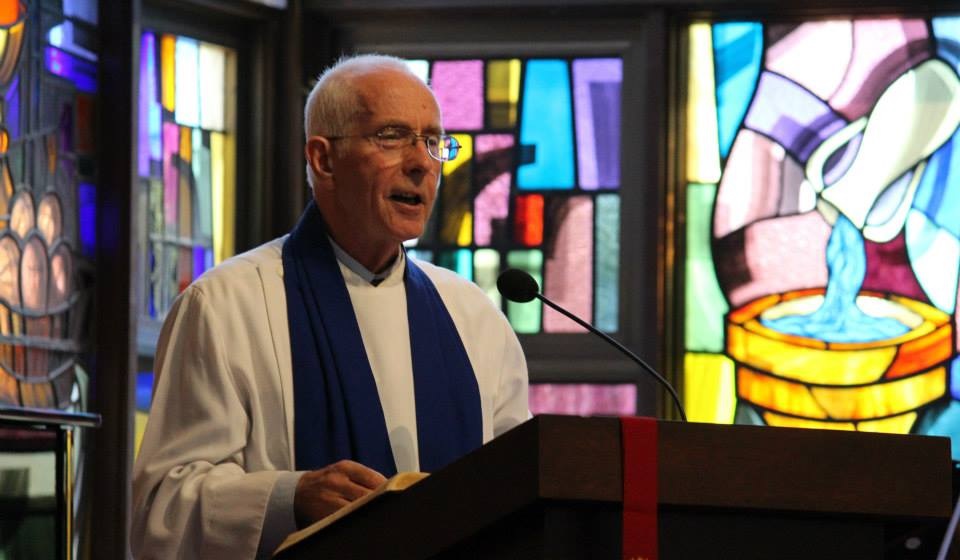With Rev. Prof. Dean Drayton

Could Auschwitz happen again?
Eighty years ago on Jan 29 1945 Auschwitz was liberated. A million Jews were deliberately killed there as part of Hitler’s attempt to annihilate the Jewish people. How could it have happened that Jews were rounded up from throughout Europe, sent by train to the camp, where most, especially women and children, were marched straight into the gas chambers on arrival? Those left, who were strong enough to work, became slaves working in surrounding factories by day, housed in inhumane camps at night until they sickened and were then killed as well. The cry has gone up. “This must never happen again.”
Germany was considered at that time to be one of the most Christian nations on earth in terms of church attendance and Christian learning! How was it possible for such a mechanised killing machine to have operated for more than five years in Germany without protest? It is imperative that we find out how this could have happened if it is not to happen again.
There were at least three factors involved. First, in the 1919 Treaty of Versailles Germany was forced to pay reparations for World War I that bankrupted Germany in the twenties resulting in political unrest and rapid inflation.The 1929 world wide depression limited the possibility of any political solutions.
Second, the situation provided a setting for a strong leader or fuhrer to emerge. Hitler promised bold new ways for Germany to recover from this financial hardship which he claimed was brought about by Jewish financial control of Europe. Third he set about creating the Jewish race as the enemy and finding ways of making them outcasts in the mind of the German people.
Only a few stood up against this scapegoating of the Jewish people. The church on the whole accepted that this was for the good of the nation. Bonhoeffer, a German theologian, in a national radio programme made the point that violent actions against Jews would be a denial of their rights as German citizens. He was cut off before he finished. He later wrote, that if we scapegoat the Jews we scapegoat Jesus. Without the tacit support of most in the German Church Hitler would have found it much more difficult to carry out his “final solution”.
It is most important to identify why there was not active repudiation of Hitler’s plans. First throughout the Middle Ages and into the present there had been pogroms against the Jews with the cry that “they were the killers of Jesus”. Second, and more importantly the church has historically often reduced the grace of God to a human framework of goodness. In the language of Genesis we all eat from the Tree of the knowledge of good and evil, in which we are the ones that decide what is good and what is not, what is right and what is not. The apostle Paul in the book of Romans shows how our view of goodness gets warped by sin, and we fall from the love for one another that is Christ’s way Auschwitz may never have happened if the Churches had not acquiesced in a morality that promised good for the nation at the cost of a particular group or race of people.
If any church is to be faithful it must speak out in any nation if any group is outlawed. A church in any nation which does not do so betrays its Lord, and opens the future to the possibility of dreadful evil happening again.

Rev. Prof. Dean Drayton
(호주 연합교단 증경 전국총회장, 이이오나 트리니티 대학 이사장)
아우슈비츠가 다시 일어날 수 있을까?
80년 전인 1945년 1월 29일, 아우슈비츠가 해방되었다. 히틀러가 유대인을 절멸시키려는 시도의 일환으로, 그곳에서 백만 명의 유대인이 의도적으로 학살당했다. 어떻게 이런 일이 가능했을까? 유럽 전역에서 유대인들이 체포되어 기차로 수용소로 보내졌고, 도착하자마자 대부분의 사람들, 특히 여성과 아이들은 곧바로 가스실로 끌려갔다. 살아남은 이들은 강제노동자로 사용되었으며, 낮에는 주변 공장에서 일하고 밤에는 비인간적인 수용소에서 지내다 결국 병들어 죽거나 살해되었다. 사람들은 외쳤다. “이런 일이 다시는 일어나서는 안 된다!”
당시 독일은 교회 출석률과 기독교 신학적 학문 수준에 있어서 세계에서 가장 기독교적인 나라 중 하나로 여겨졌다. 그런데 어떻게 이런 기계적인 학살이 5년 넘게 독일에서 지속될 수 있었을까? 어떻게 거의 아무런 저항 없이 이루어졌을까? 우리는 이러한 일이 가능했던 이유를 철저히 밝혀야 한다. 그렇지 않으면 같은 일이 다시 일어날 수도 있다.
이러한 비극이 발생한 데에는 적어도 세 가지 요인이 있었다.
첫째, 1919년 베르사유 조약에서 독일은 제1차 세계대전의 배상금을 지불하도록 강요받았고, 그로 인해 1920년대 독일 경제는 파산 상태에 이르렀다. 이는 정치적 불안정과 급속한 인플레이션을 초래했다. 1929년 세계 대공황이 겹치면서 정치적 해결책을 찾기가 더욱 어려워졌다.
둘째, 이러한 혼란 속에서 강력한 지도자가 등장할 환경이 조성되었다. 히틀러는 독일 경제 회복을 위한 대담한 새로운 방법을 제시하며, 그 재정적 어려움이 유대인의 금융 지배 때문이라고 주장했다.
셋째, 그는 유대인을 독일 사회의 적으로 만들고, 독일 국민의 의식 속에서 그들을 배척해야 할 존재로 인식시키는 데 주력했다.
유대인을 희생양으로 삼는 이러한 분위기 속에서, 이에 맞서 싸운 사람들은 거의 없었다. 대다수의 독일 교회는 “국가를 위한 선한 일”이라는 명목으로 히틀러의 정책을 받아들였다. 독일의 신학자 디트리히 본회퍼는 한 라디오 방송에서 유대인을 향한 폭력이 독일 시민으로서 그들의 권리를 부정하는 것이라고 경고했으나, 그의 방송은 중간에 강제로 중단되었다. 이후 그는 “우리가 유대인을 희생양 삼는다면, 우리는 예수님을 희생양 삼는 것과 다름없다”고 말했다. 독일 교회의 묵인 없이는 히틀러가 ‘최종 해결책’을 실행하는 것이 훨씬 더 어려웠을 것이다.
히틀러의 계획에 대해 교회가 적극적으로 반대하지 않은 이유를 분석하는 것은 매우 중요하다.
첫째, 중세부터 현대까지 “예수를 죽인 자들”이라는 명목으로 유대인을 향한 박해와 학살(포그롬)이 반복되어 왔다.
둘째, 더 중요한 것은, 교회가 종종 하나님의 은혜를 인간의 도덕적 기준으로 축소해 왔다는 점이다. 창세기의 언어로 표현하자면, 우리는 모두 ‘선악을 알게 하는 나무’의 열매를 먹으며, 스스로 무엇이 선하고 무엇이 악한지를 결정하려 한다. 바울은 로마서에서 우리의 도덕적 기준이 죄로 인해 왜곡되었으며, 결국 그리스도께서 가르쳐 주신 서로 사랑하는 길에서 벗어나게 된다고 설명한다. 만약 교회가 국가의 ‘선’을 위해 특정 집단을 희생시키는 도덕적 논리를 묵인하지 않았다면, 아우슈비츠는 결코 발생하지 않았을 수도 있다.
어느 나라에서든, 어떤 집단이 불법화되고 차별 받는 상황에서 교회가 침묵한다면, 그것은 주님을 배반하는 것이며, 미래에 다시 끔찍한 악이 일어날 가능성을 열어주는 것이다.
번역 = 김환기 사관

